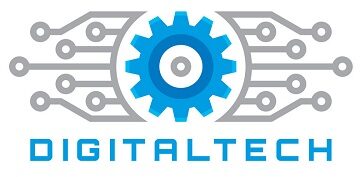
Maximizing income and profitability is essential for success in the hectic and cutthroat hotel sector. In order to do this, hotels are more frequently utilizing Strategic Revenue Management Services supported by cutting-edge management of software revenue technologies. These services help hotels achieve sustainable growth and success by enabling them to make data-driven decisions, optimize pricing strategies, and take advantage of market opportunities. Let’s look at how Strategic revenue management services are essential to hotels’ performance since they maximize revenue and maintain a competitive edge.
Services for Strategic Revenue Management
In the hospitality sector, strategic revenue management services cover a wide range of data-driven tactics designed to maximize revenue and profitability. Advanced Software Revenue Management systems that analyze market data monitor booking patterns, and precisely estimate demand underpin these services. The final objective is to maximize room prices, boost occupancy rates, and produce the highest revenue levels.
The Art of Dynamic Pricing
Strategic services for managing revenues’ foundational component is dynamic pricing. Hotels can use the management of software revenue tools to establish room prices in real-time depending on customer demand, competitive pricing, and market conditions. Hotels can maximize revenue and occupancy during peak periods while still being competitive during periods of low demand by modifying rates in response to shifting demand patterns.
Dynamic Pricing Influencing Factors
Decisions about Dynamic Pricing are affected by several factors. A significant factor in price determination is market demand, as prices may rise during periods of strong demand and fall during periods of low demand. Rival prices, inventory levels, client demographics, and outside variables like the weather or special occasions can also impact dynamic price methods.
E-commerce application
In the e-commerce sector, dynamic pricing is frequently used. To offer personalized prices, online merchants make use of customer information, surfing habits, and purchase history. For instance, depending on a customer’s location or purchasing preferences, an e-commerce platform may display various pricing for the same product to different customers.
Applications in the Travel Sector
The use of dynamic pricing is becoming commonplace in the travel sector. Price adjustments are routinely made by airlines, hotels, and travel agencies based on elements such as seat availability, booking window, and seasonal demand. With this strategy, they may maximize revenue and fill empty seats or rooms during low demand.
Advantages of dynamic pricing
The Art of Dynamic Pricing benefits firms in a number of ways. They can respond quickly to market developments, assuring their continued relevance and competitiveness. With dynamic pricing, firms can provide discounts to entice price-sensitive clients during off-peak hours while charging higher prices during peak hours.
Challenges and Moral Issues to Think About
Dynamic pricing has advantages, but it also has drawbacks and moral dilemmas. Customers’ unhappiness and harm to a brand’s reputation can result from pricing discrimination, where customers are charged different prices for the same product. Fairness and transparency are necessary to keep customers’ trust.
Putting Dynamic Pricing Strategies into Practise
Complex data analysis, pricing algorithms, and real-time monitoring tools are all necessary to implement dynamic pricing. Businesses must invest in technology and analytics systems that can collect, handle, and analyze enormous amounts of data.
Finding the Ideal Balance
Businesses must balance revenue optimization and customer pleasure to use the Art of Dynamic Pricing successfully. While maximizing revenue is essential, long-term success also depends on client loyalty and repeat business.
Market segmentation strategies with customized pricing
Strategic revenue management services emphasize market segmentation. Thanks to software revenue management systems, hotels can use specific pricing strategies to target certain consumer segments. In order to increase the chance of bookings and guest satisfaction, hotels can provide tailored pricing and promotions by studying the needs and preferences of different consumer groups.
Demand Prediction for Inventory Management
Strategic services for managing revenues are built on accurate demand forecasting. Software Revenue Management solutions examine previous data and market patterns to forecast future demand effectively. This knowledge enables hotels to manage their inventory more effectively, ensuring that the proper rooms are offered at the correct rates to satisfy anticipated demand. By doing so, underselling or overbooking is avoided, increasing profitability.
Analysis of Alternatives and Market Positioning
Services for strategic revenue management include an ongoing competitive analysis. The management of software revenue tools continuously track market positioning and competition pricing. With the aid of this information, hotels are able to quickly modify their pricing plans in order to remain competitive and hold a dominant market position.
Making Decisions Driven by Data
Making decisions based on data is one of the key benefits of strategic revenue management services. The management of software revenue tools give real-time data-based actionable insights that enable hotels to optimize pricing, anticipate demand, and improve marketing initiatives. Risks are reduced, and revenue management methods are more effective when decisions are made using data.
Revenue per Available Room (RevPAR) Optimisation
Maximizing Revenue per Available Room (RevPAR) is the primary goal of strategic revenue management services. Hotels may maximize RevPAR even during times of low demand by combining dynamic pricing, upselling, and cross-selling strategies. , upselling, and add-on services are offered with the help of software revenue management systems.
Taking Advantage of Seasonal and Special Events
Seasonality and exceptional events are taken into consideration by strategic services for managing revenues. With management of software revenue systems, hotels can evaluate how such events will affect demand and rival pricing. With this knowledge, hotels can intentionally change their rates to draw visitors and increase income during certain times.
Conclusion
In conclusion, software revenue management tools and strategic services for managing revenues play a critical role in the success of the hospitality sector. These services enable hotels to take advantage of market opportunities, estimate demand correctly, and optimize pricing strategies. Hotels can achieve long-term revenue growth and profitability by using dynamic pricing, customizing market segment rates, and data-driven decision-making.
Hotels can stay one step ahead of their rivals and hone their market presence using competitive analysis and market positioning. Additionally, hotels can increase revenue at peak times by maximizing RevPAR and utilizing seasonality and special events.
Strategic services for managing revenues is an essential resource for hotels looking for long-term success and profitability in a rapidly evolving and competitive environment. By utilizing these services and Software Revenue Management technologies, hotels may manage market challenges, meet consumer demands, and experience continuous success in the dynamic hospitality business.






